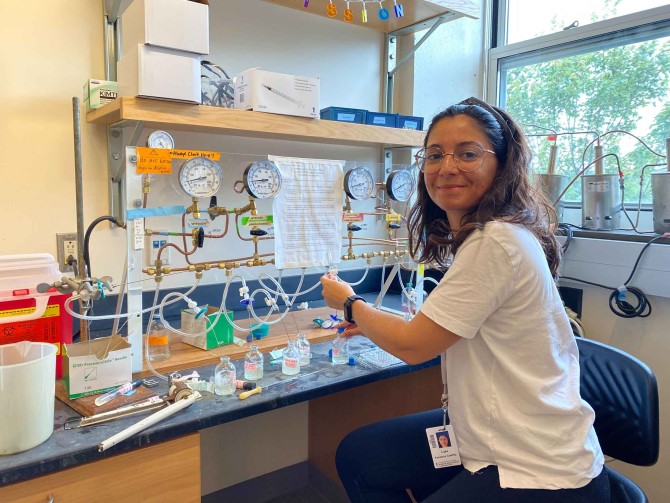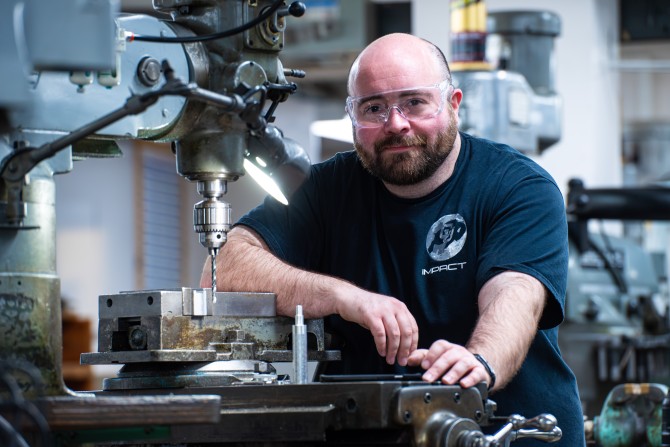Two Cornell Scientists Selected for 51 Pegasi b Fellowships
Two early-career scientists at Cornell have been awarded Heising-Simons Foundation 51 Pegasi b Fellowships: Lígia Fonseca Coelho, a Fulbright Scholar in the Department of Astronomy in the College of Arts and Sciences; and Zach Ulibarri, a postdoc in mechanical and aerospace engineering in the College of Engineering.
The three-year postdoctoral fellowship provides recipients with resources, freedom and flexibility to conduct theoretical, observational and experimental research in planetary astronomy. Fellows were selected based on research achievements and potential to impact the field of planetary astronomy, as well as their commitment to and plans for advancing diversity, equity and inclusion in planetary astronomy, according to the Heising-Simons Foundation. The 51 Pegasi b Fellowship provides each of the eight recipients with an initial three-year grant of up to $430,000 to pursue their proposed research at a selected host institution.
Coelho studies microbes from extreme environments. She measures these microbes through a spectrometer, a device that allows her to capture their essence to create a color-coded guide designed to assist space missions in their search for life beyond earth in other planets.
Ulibarri is spearheading methods of minimizing damage to delicate building blocks of life when detecting organic chemistry on icy worlds, using cutting-edge spacecraft devices – such as the forthcoming Europa Clipper mission’s Surface Dust Analyzer (SUDA) to which he contributed.



